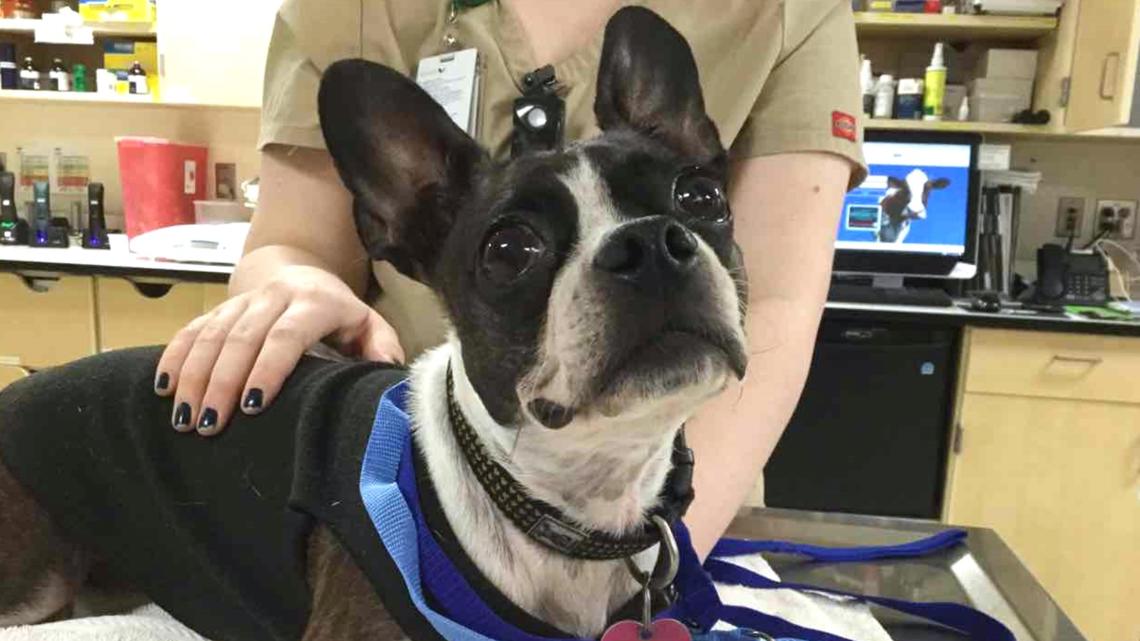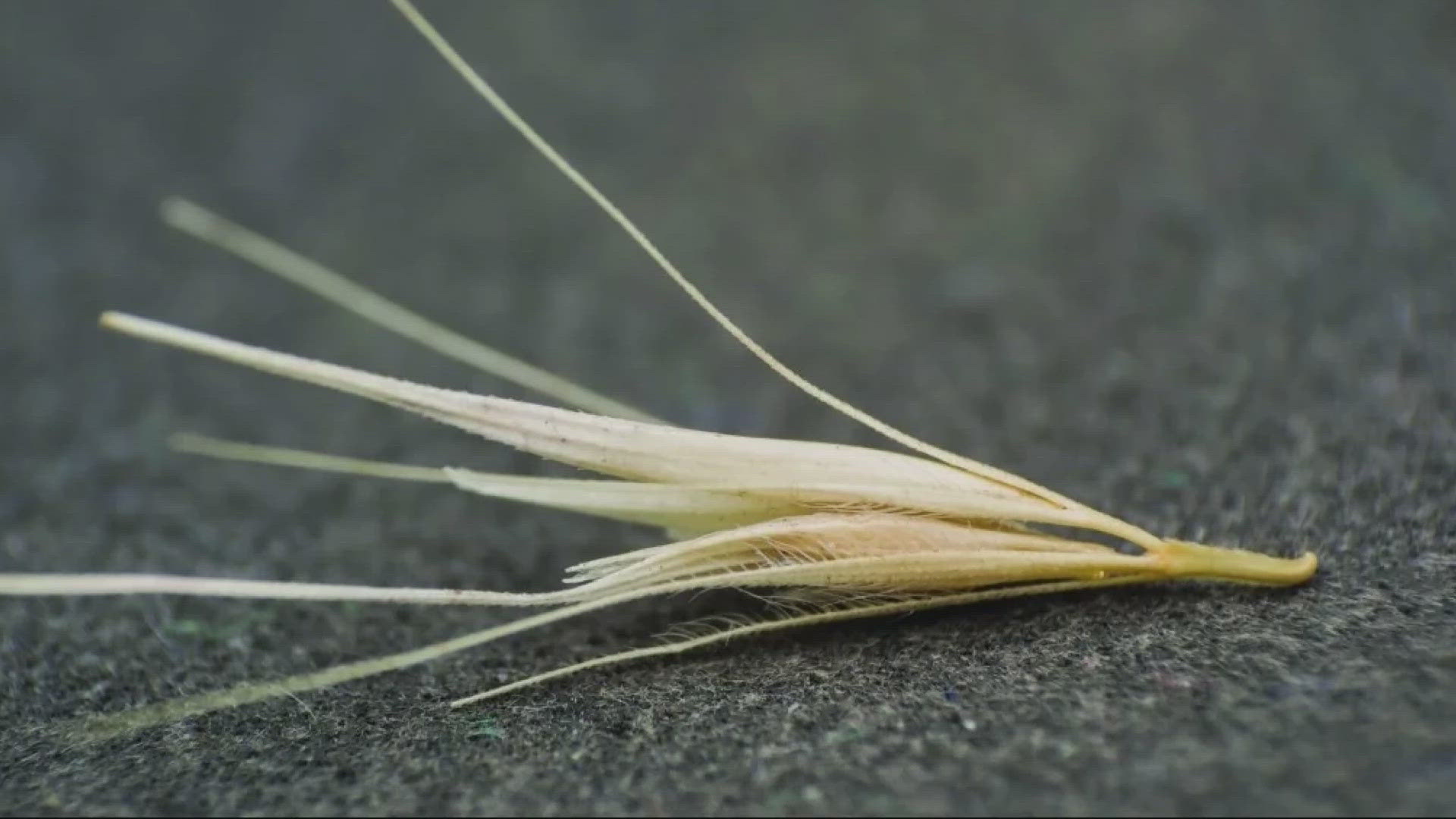PORTLAND, Ore. — Despite its cute name, foxtails can pose a major threat to pets' health.
It is a type of grass seed pod that resembles a fox's tail. It has small, sticky hairs designed to stick to things and can seriously injure and even be fatal to pets that may accidentally inhale it.
Foxtails are found across much of the United States, particularly in the western regions.
The foxtail pod can stick to an animal's fur, and while this sticky feature is great for the grass to spread its seed around, the segment that gets stuck to pets could burrow into the skin, get stuck in eyes and ears, be inhaled and even make its way into the lungs.
"They have barbed edges, which is where they get their name foxtails because they look like a fox's tail," said Anne Marshall, a staff veterinarian at DoveLewis. "They actually help them be really, really good sticking to a pet and migrating through our pets and ending up in places where they shouldn’t be.”
Usually, foxtails are not a big deal for people, because we can easily remove them, but for pets, it's a different story, especially for those that like to sniff a lot.
“We’ve pulled them out of eyes, ears, noses and mouths often,” Marshall said.
Recently, Maggie, a Boston terrier, came to DoveLewisUrgent Care to get a foxtail removed from her nose. Her owner happened to be watching Maggie sniffing the ground and saw her inhaling a foxtail. Marshall said that since Maggie’s nose is short, she had to use a special forceps to pull the foxtail out.


For pets with shorter noses, it can be trickier to remove stuck foxtails, she added.
Foxtails are most prevalent in late spring and the summertime when the weather is drier.
“The best advice that I have for pet owners is just to be as vigilant as you can," Marshall said. "It’s going to happen sometimes and the best that we can do is to try and prevent those catastrophic events ... avoiding tall, grassy fields where possible and being knowledgeable that as things dry out; we are at higher risk of this.”

